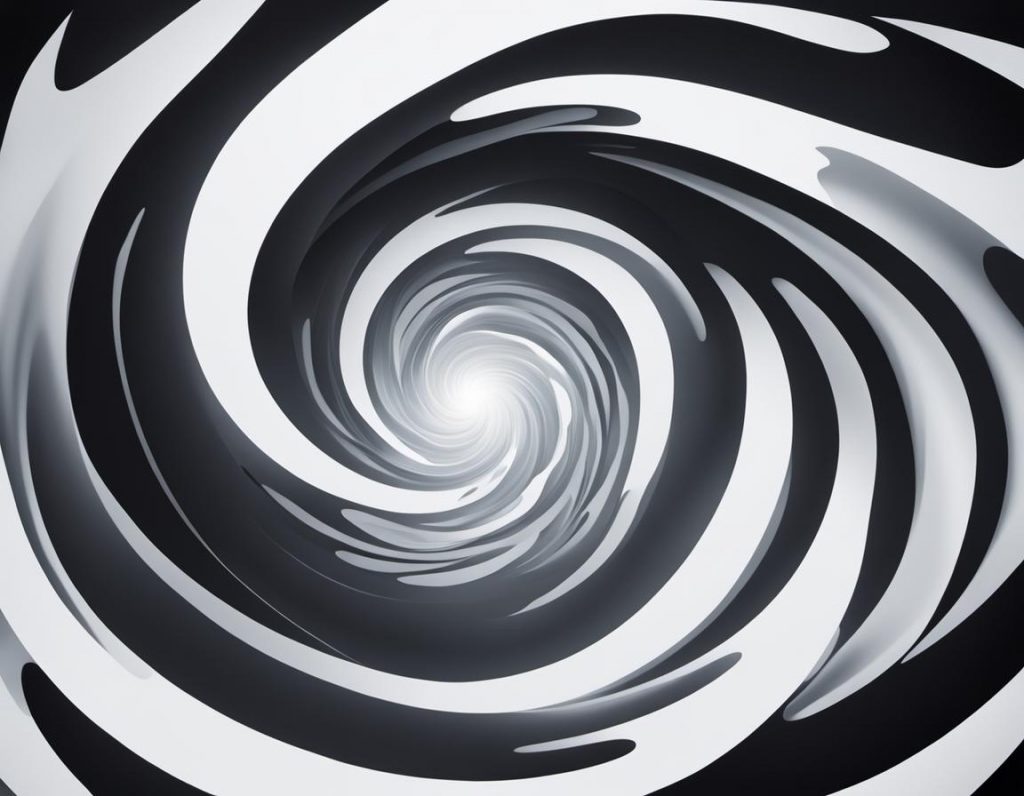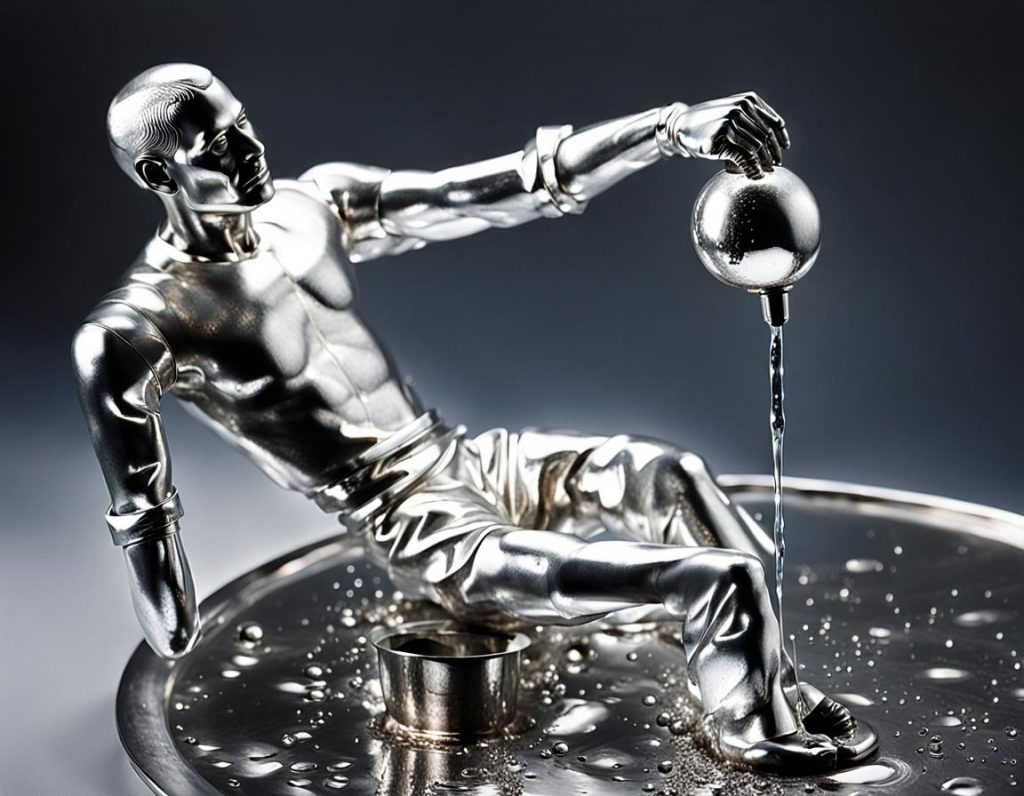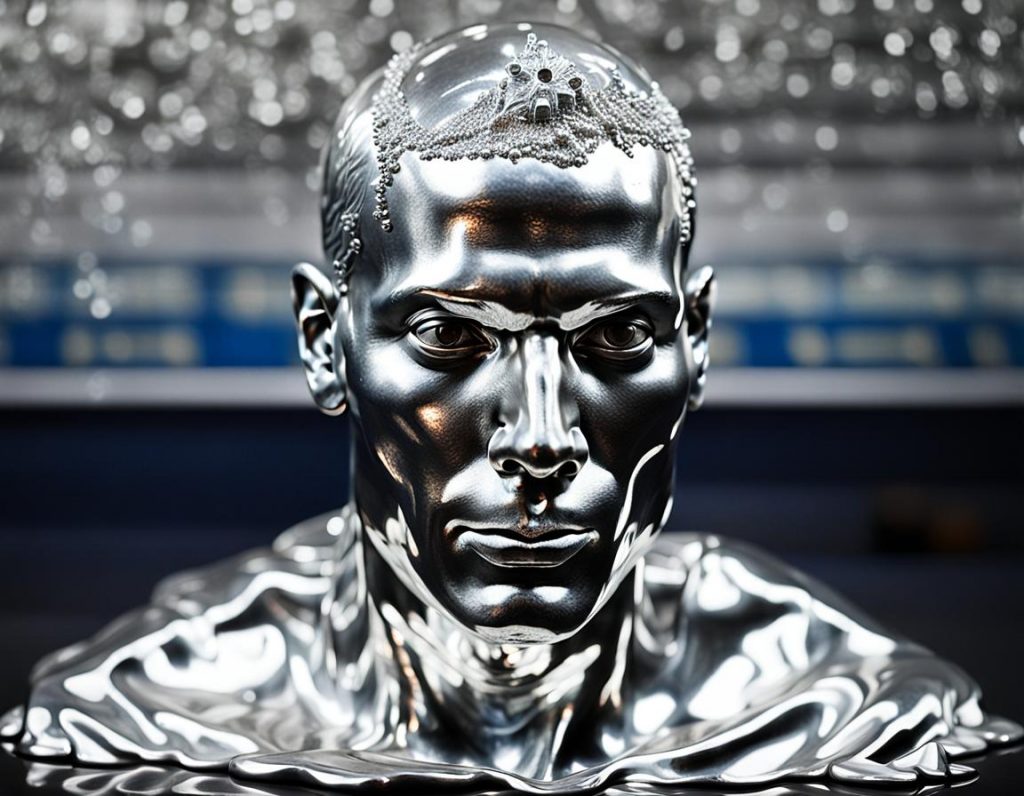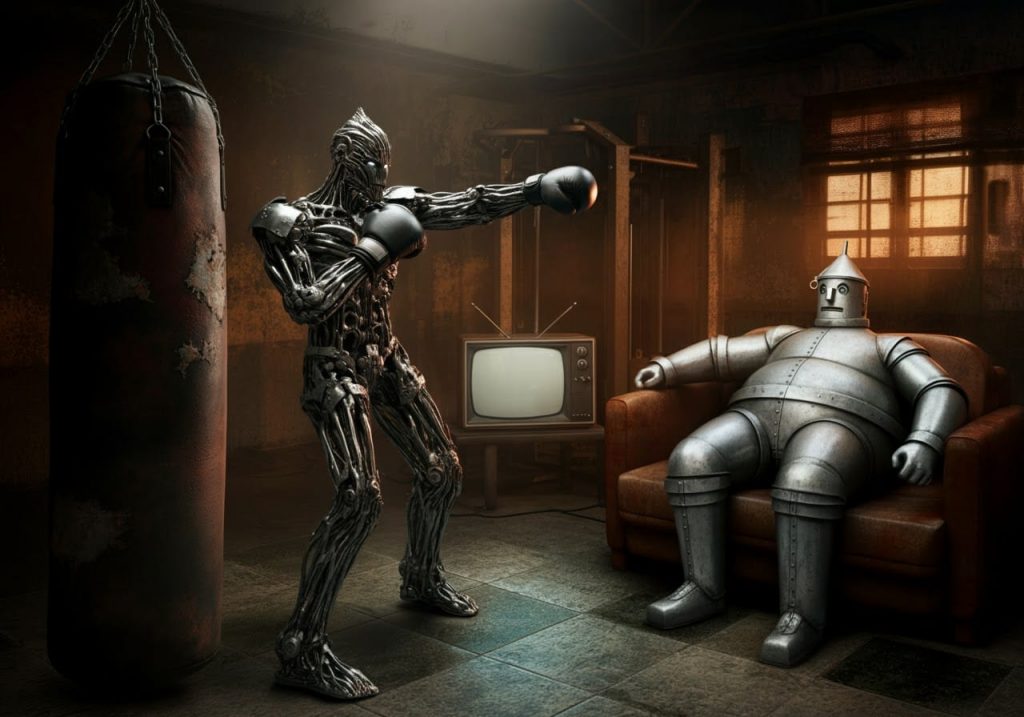
The transmutation of iron into tin is the fifth stage of the Katabasis. This process is a process of softening. The hard edges of iron soften to become the smooth edges of tin. The colour doesn’t change, and neither does any subtle quality, because this transformation is primarily a physical one. This makes it easy for others to notice and understand.
In everyday terms, this transmutation is usually the result of becoming lazy. If the descent from mercury and silver down to copper and iron is a matter of losing the spark, the descent from iron to tin is a matter of losing the drive. The get-up-and-go is gone. A character descending to tin will lose the raw, vital energy that characterises the warrior class.
The frequency of a character undergoing this transmutation is the frequency of a character deciding to take it easy. It’s the energy of kicking back with a cigarette and a pina colada, listening to lounge music and watching golf or cricket on the television. It’s the energy of Dionysus in his role as the Grand Daddy of Festivities. It’s McDonalds on a Saturday morning with a hangover.
In descending from iron, tin becomes fat and slow.
Being a chiefly physical transmutation, the softening to tin is readily noticable to all other characters, even children. A formerly fit character will become fat, whether through gluttony, inactivity or a combination of the two.
There is a strong metaphorical connection between tin and fat. The well-shaped man of iron, in becoming a man of tin, becomes physically shapeless. His physical centre of gravity becomes much lower.
In this physical realm, a stark loss of energy is also noticable. The character of iron can bound up a set of stairs; the character of tin huffs and puffs. Where the man of iron or copper wants to push on, the man of tin wants to stop and have a rest. It’s not just that characters of tin are unfit – by descending from iron to tin, they also lose the will to remain fit, and become easily-satisfied slobs.
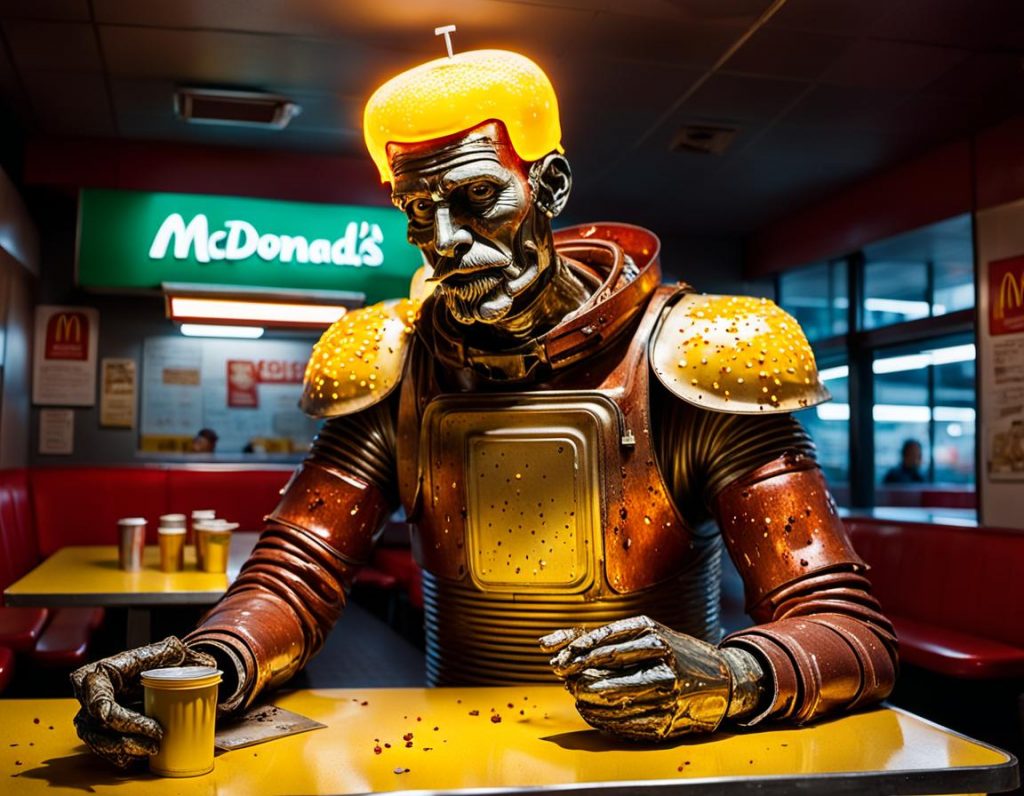
Gluttony is the chief vice of the realm of tin, and a character of iron can come to descend through becoming gluttonous. Perhaps they trained hard for a specific sporting event – a league final or a regional tournament – and now, without a particular reason to stay physically disciplined, they pig out.
The descent from iron to tin, and the gluttony associated, doesn’t only apply to food. A character who decided to consume enormous amounts of alcohol or cannabis, such that they became a slob, would also fit the pattern of iron descending to tin. The key element of this transmutation is overconsumption.
Socially, this transformation often occurs immediately after marriage. Many a person will make a special effort to stay trim and fit only as long as they’re trying to attract a romantic partner. Once that partner’s loyalties are secured the blobbening begins. This is similar to the transmutation of iron up to copper in the sense that the priority shifts away from physical fitness. The difference is that, in transmuting to copper, iron concerns itself with higher matters, whereas in transmuting to tin it concerns itself with lower ones.
Mentally, this transmutation is marked by excuse-making. A character descending to tin becomes soft in the head as well as in the body. As the sharp edge of iron is lost, the sharpness of decision-making is also lost. So as a character descends to tin, they start to dither and hesitate. This is, to a major extent, the result of increased levels of fear in comparison to the level of iron.
Putting everything off for another day, and neglecting one’s physical duties, is typical of this transformation. If the descent from copper to iron is marked by a character neglecting their social duties, the descent from iron to tin is marked by a neglect of physical duties. This doesn’t so much refer to personal hygiene (loss of hygiene falls under the final stage of the Katabasis) as neglect of duties such as keeping one’s house clean.
Occupationally, a character might descend to tin when they decide they don’t really care any more. A character who manages a bar might decide, after repeated harassment from local authorities, that they no longer care about obeying alcohol licensing laws. Iron is usually seen as honourable but, from the perspective of tin, it can be seen as rule-bound and rigid. In descending to tin, a character might feel motivated by a will to relax and let go of the stresses of trying to conform to a higher frequency.
This transmutation could also be reflected by a change in occupations. A soldier might decide to become an innkeeper. A hitman might decide to become a musician. A professional boxer might decide to become a chef. In any case, the character would give up a job involved with domination and take on a job concerned with sensual pleasure.

A sudden physical trauma can set in motion the transformation from iron to tin. A major injury, such as a broken leg, could precipitate a mental and spiritual change from an active person to a passive one. The time spent recovering from an injury could make anyone physically soft, but if that time makes the character mentally and spiritually soft as well, then a transition to tin is underway.
Social traumas causing a character to fall down the Mithraic Ladder are generally the preserve of the descent from copper to iron. But, in extreme cases, they can ruin a character’s will, such that they give up and allow themselves to become gluttonous. Getting kicked out of a sports team might be the catalyst to a bout of prolonged gluttony, but a social trauma that led to a descent into the realm of tin would usually be a major one, such as a divorce.
Spiritually, this transmutation can occur when a character stops appreciating the value of action. In successful cases of turning inward, a character might develop higher, spiritual qualities and transmute into mercury or gold. In unsuccessful cases, a character might develop lower, more bestial qualities and transmute into tin. These unsuccessful cases could involve a character taking massive action, only to fail, hence the loss of motivation.
From a literary point of view, this transmutation is understood by all. Everyone who reads your story will be able to understand the basic dilemma of fitness vs. laziness. Stories about this transmutation can therefore have a wide range of themes: they could be moral fables about laziness for children, or grim dissections of a mind falling to pieces for adults.
One of the best-known depictions of this transmutations in popular culture is that of Rocky in the Rocky series of films. As is ever the case, this transmutation need not imply a straight course to the bottom of the Mithraic Ladder. As Rocky was fit, then got fat and lazy, then got fit again, a character who transmutes from iron to tin can always transmute to iron again.
*
This is an excerpt from Vince McLeod’s The Alchemy of Character Development, the sixth book in VJM Publishing’s Writing With Psychology series. This book will show you how to use alchemy to create deep, realistic and engaging characters for your creative fiction.
*
For more of VJM’s ideas, see his work on other platforms!
For even more of VJM’s ideas, buy one of his books!
*
If you enjoyed reading this piece, buy a compilation of our best pieces from previous years!
Best VJMP Essays and Articles of 2023
Best VJMP Essays and Articles of 2022
Best VJMP Essays and Articles of 2021
Best VJMP Essays and Articles of 2020
Best VJMP Essays and Articles of 2019
Best VJMP Essays and Articles of 2018
Best VJMP Essays and Articles of 2017
*
If you would like to support our work in other ways, make a donation to our Paypal! Even better, buy any one of our books!




